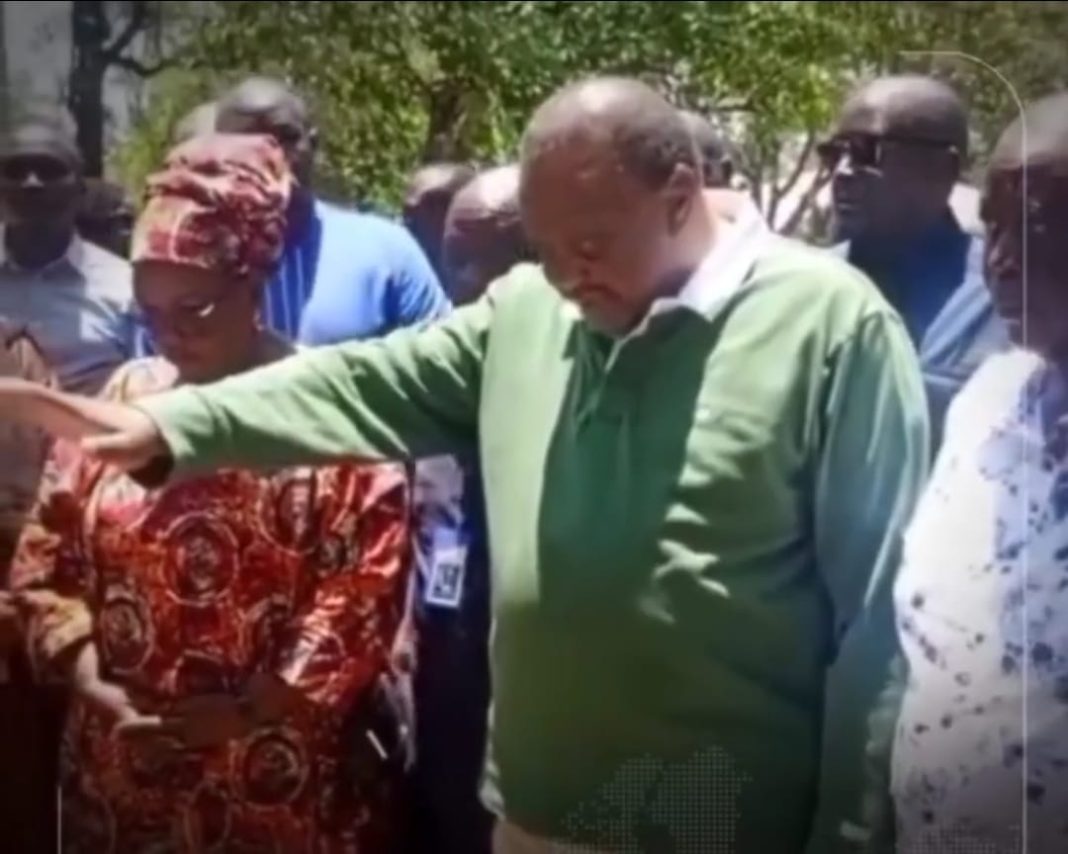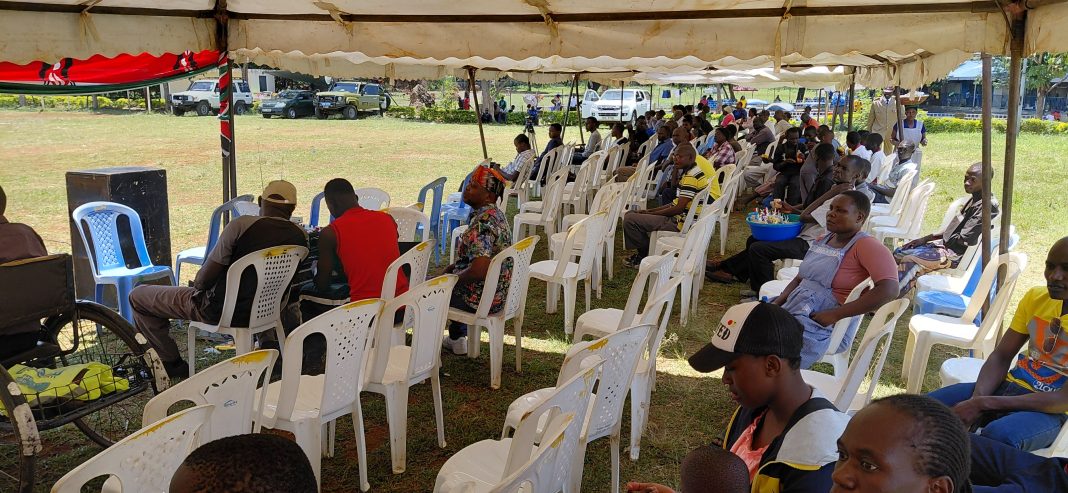By James Okoth
In the quiet morning after the nation laid to rest Raila Amolo Odinga, the red soils of Bondo still whispered with grief. The air, heavy and still, carried the weight of Kenya’s collective farewell. But amid the calm, one presence stood out — former President Uhuru Kenyatta, walking slowly, head bowed, toward the fresh grave of his old friend.
It was not the visit of a former Head of State to a fallen political ally. It was something far deeper — the quiet pilgrimage of a brother to another.
Uhuru’s visit to Raila’s resting place at the Jaramogi Oginga Odinga homestead was a gesture soaked in emotion and meaning. It was a tribute that went beyond words, politics, or headlines — an affirmation of a bond that time, rivalry, and leadership could never erode.
The story of the Kenyatta and Odinga families has never been an easy one. It has been one of unity and conflict, of partnership and divergence — yet, in every turn of Kenya’s history, their names have remained intertwined.
From the days of Jomo Kenyatta and Jaramogi Oginga Odinga, who built the foundations of an independent Kenya, to the years when Uhuru and Raila stood together to calm a fractured nation, theirs has been a bond of destiny.
When Uhuru stood beside Raila after the historic Handshake of 2018, it was more than political reconciliation — it was the healing of an old national wound.
And now, standing by his grave, Uhuru rekindled that spirit of brotherhood, affirming that friendship built on shared struggle never truly dies.
Those who saw Uhuru at the graveside speak of a man overwhelmed by quiet reflection. In that moment, Uhuru was not a former president. He was simply a friend — mourning, remembering, and honouring.
His decision to remain in Bondo after the national burial, long after most dignitaries had left, captured something rare in today’s politics: humanity over ceremony, loyalty over convenience.
“We didn’t expect him to stay behind,” said Mary Akinyi, a trader in Kisumu town who had learnt of Uhuru’s gesture through the media. “When we heard Uhuru was still there, visiting Baba’s grave quietly, it touched many of us. It showed that friendship can be real — not just politics.”
“For the Kenyatta family to come here, to Jaramogi’s home, after all that history — it means a lot,” added Peter Oduor, a local. “It tells us that forgiveness and respect still exist among great men.”
As Kenya continues to mourn Raila Odinga — the man who defined an era of democracy, resilience, and reform — Uhuru’s gesture speaks to something larger than personal grief. It reminds the nation that true leadership begins and ends with empathy.
Two families — once divided by ideology, later united by purpose — now find themselves bound again, not by politics, but by shared loss and love.
In visiting Raila’s grave, Uhuru Kenyatta lived out the full circle of brotherhood. A brother in struggle. A partner in healing. And now, a friend in farewell.
In the stillness of Jaramogi’s homestead, as the wind brushed through the mango trees and the soil settled around Raila’s resting place, Kenya witnessed something quietly profound —
a nation reminded that, even in death, brotherhood endures beyond power.




